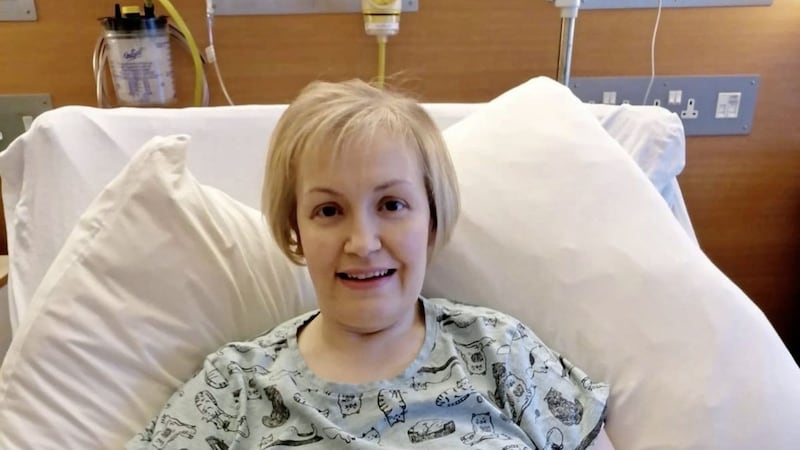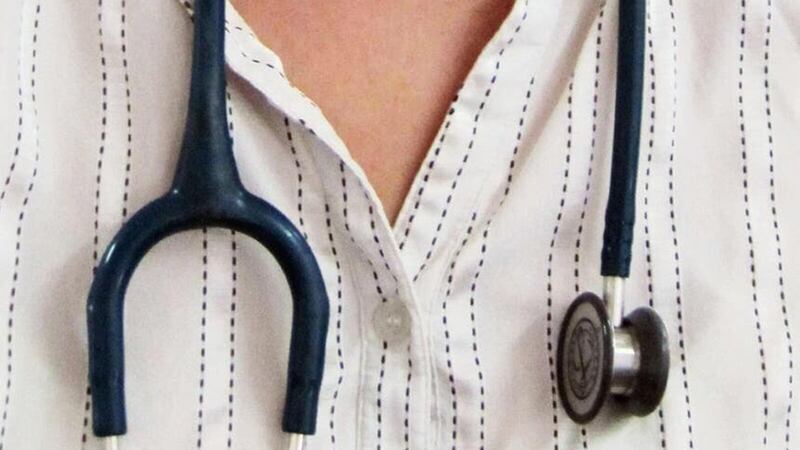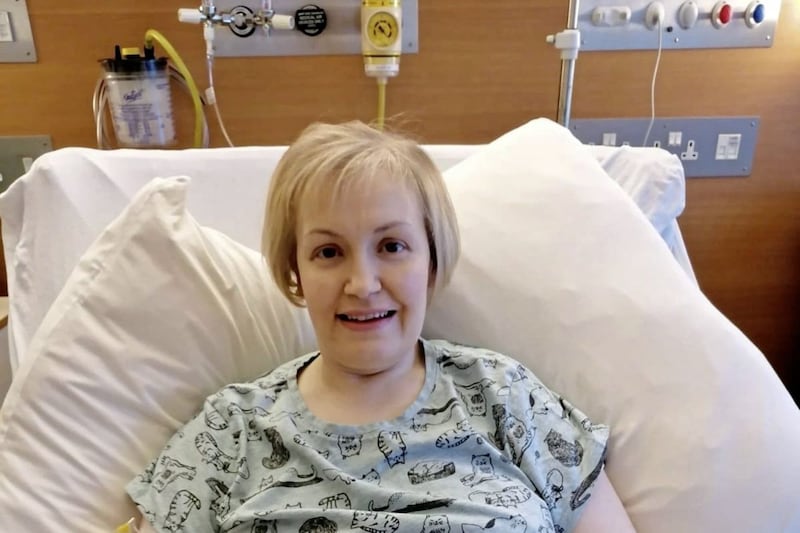A POWERFUL message written by a Co Antrim teacher shortly before her death from a gynaecological cancer has been released in a bid to urge other young woman to act on symptoms.
Joanne Carruthers (39) from Ballymena passed away on December 16 in Antrim Area Hospital, where she had been nursed in the Macmillan palliative care unit for the previous nine weeks.
Desperate to educate young women about warning signs and not to be "put off" going to a GP out of embarrassment, the primary school teacher - along with the help of Macmillan staff - put her experience down on paper in her final weeks.
Ms Carruthers, who suffered from heavy periods since her mid-twenties, learned she had an aggressive form of vaginal cancer last August after attending A&E in extreme pain and experiencing heavy bleeding.
Just months earlier she collapsed in Round Tower Integrated School in Antrim and began to haemorrhage.
Assuming she had fibroids, a routine biopsy however revealed the devastating diagnosis of Leiomyosarcoma. An MRI scan later discovered a large tumour on her uterus that had spread to one lung.
Ms Carruthers, who lost her father John 10 days before her own death, wrote of her frustration over the difficulty that society had in discussing menstruation - describing it as an "unmentionable" - and appealed for greater education on the subject from a young age.
"I attended an all-girls school where we watched a video telling you your period could be light or heavy, last two days or nine days, and that there was no 'normal'. There was no sense that you should find what was normal for you within these limits and then monitor changes from that," she wrote.
"My periods were always fairly heavy, but in my middle twenties they changed, becoming much heavier and more painful. But I was too embarrassed to go to the doctor. I played it down until I couldn’t stand up with the pain, and my mother dragged me kicking and screaming to the GP.
"For younger women any bleeding from the vagina is always associated with periods and may be viewed as more normal. For both groups, however, this area of the body and what is happening to it is always embarrassing and unmentionable."
When she finally became ill at work - a job she "loved" and where she had worked for almost 15 years - she said it was a "relief to be given permission to be ill".
Last October, Ms Carruthers's condition severely deteriorated. Doctors told her the cancer had become inoperable.
She wrote: "It turned out that I had had a tumour for a long time, but had become so used to period pain and heavy bleeding that I didn’t recognise this as an important symptom of something different. It was just what women had to suffer sometimes."
Macmillan staff said Joanne had a "simple message" for any girl reading about her experience: "If things have changed for you, please talk to somebody about it - don’t leave it."
Speaking to The Irish News last night, Joanne's only brother, Simon, spoke of his pride in his sister who he described as a "selfless person".
"Joanne was very practical and always wanted to help people, even in her death," he said.
"She wanted to raise awareness and we are very happy to release her writing.
"Our father John died on December 6 and his funeral was the day after Joanne's passing, he never got over her illness and had a sudden heart attack. But even after he died, Joanne tried to do a recording for his memorial."
Mr Carruthers and his mother Judith said they were "incredibly grateful" to Macmillan staff for giving his sister a quality of life in her final two months.
"She developed an infection and was given a dire prognosis, we thought she had only a few days left. But the staff got the treatment right and Joanne was in the unit for almost 10 weeks where she was so bright.
"We fully appreciate the quality of time we had with her, we were very fortunate."



